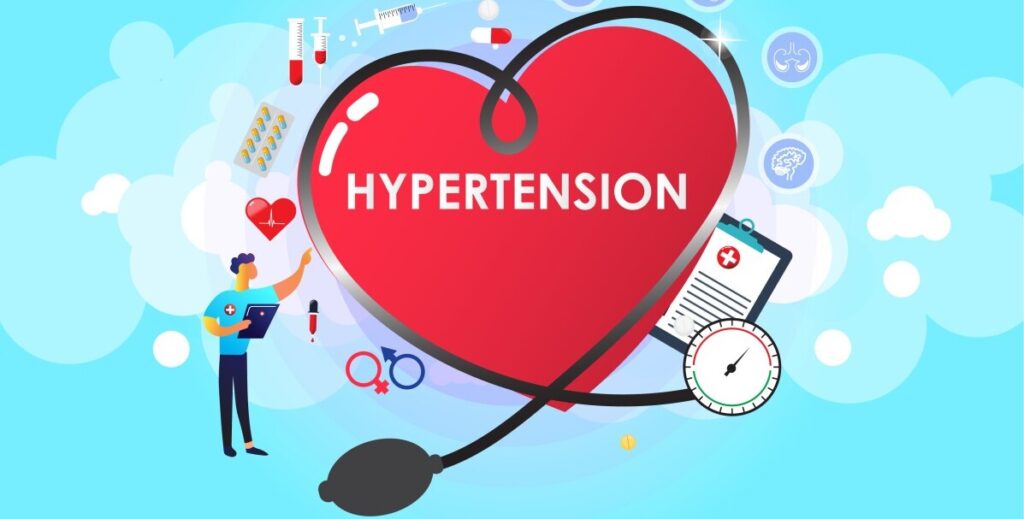Hypertension, commonly known as high blood pressure, is a medical condition where the blood pressure in the arteries is persistently elevated. Blood pressure is measured using two numbers: the systolic pressure (the higher number) represents the pressure in the arteries as the heart beats and pushes blood through them, while the diastolic pressure (the lower number) represents the pressure when the heart is at rest between beats.

Here’s a brief overview of what the numbers mean in the context of blood pressure measurements:
- Normal blood pressure: Less than 120/80 mmHg.
- Elevated blood pressure: Systolic between 120-129 and diastolic less than 80 mmHg.
- Hypertension stage 1: Systolic between 130-139 or diastolic between 80-89 mmHg.
- Hypertension stage 2: Systolic at least 140 or diastolic at least 90 mmHg.
Hypertension is significant because it forces the heart to work harder than normal to circulate blood through the blood vessels, which can lead to damaged arteries and organs over time. It’s often called the “silent killer” because it typically has no symptoms until serious damage is done, making regular monitoring crucial. Common risk factors include genetics, obesity, lack of physical activity, tobacco use, excessive salt in the diet, alcohol consumption, and stress. Managing hypertension usually involves lifestyle changes, medication, or a combination of both, depending on the severity.

Some Do’s and Dont’s as suggested by Doctors
- Effective Lifestyle Changes for Managing Hypertension:
- Reducing salt intake: Aim for less than 5g of salt per day.
- Limiting alcohol consumption: Stick to a maximum of one drink per day for women and two for men.
- Quitting smoking: Smoking cessation helps improve heart health and blood pressure.
- Managing stress through techniques such as yoga, meditation, or deep breathing exercises.
- Dietary Recommendations:
- Include foods rich in potassium (like bananas, potatoes, and spinach) and magnesium (such as nuts, seeds, and whole grains).
- Incorporate healthy fats from sources like fish, avocados, and olives.
- Avoid high sodium foods, excessive sweets, and red meats.
- Emphasize a diet high in fruits, vegetables, whole grains, and low-fat dairy products.
- Impact of Physical Activity:
- Regular moderate to vigorous physical activity, such as walking, jogging, cycling, or swimming, at least 150 minutes per week.
- Strength training exercises at least two days per week.
- Activities that enhance flexibility and balance can also be beneficial.
- Behaviors to Avoid:
- Avoiding overconsumption of caffeine and energy drinks.
- Minimizing exposure to chronic stress and managing stress effectively.
- Avoiding medications and over-the-counter drugs that can raise blood pressure, such as certain cold remedies and non-steroidal anti-inflammatory drugs (NSAIDs), without consulting a healthcare provider.
- Importance of Regular Blood Pressure Monitoring:
- Regular monitoring can help track the effectiveness of management strategies and adjust treatments as necessary.
- It encourages better adherence to medications and lifestyle adjustments.
- Provides early detection of potential health complications.




